Did you know that the endocrine system plays a critical role in regulating various functions in your body, from metabolism and growth to mood and reproduction? Unfortunately, many people are unaware of the impact that endocrine system disorders can have on overall health. In this article, we will explore the importance of promoting awareness and education about endocrine system disorders, shedding light on these conditions and the steps we can take to prevent and manage them effectively.
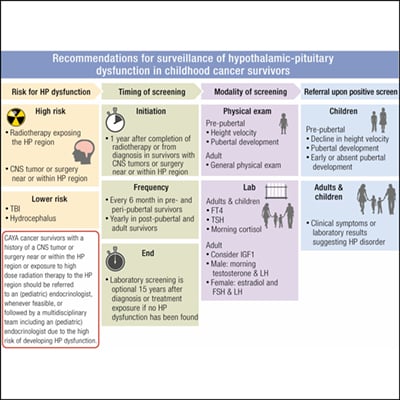
What is the Endocrine System?
Overview of the Endocrine System
The endocrine system is a complex network of glands and organs that produce and release hormones into the bloodstream. These hormones act as messengers, traveling throughout the body to regulate various bodily functions and maintain a state of balance, known as homeostasis. The major glands of the endocrine system include the pituitary gland, thyroid gland, adrenal glands, pancreas, ovaries (in females), and testes (in males).
Functions of the Endocrine System
The endocrine system plays a crucial role in regulating numerous bodily functions such as metabolism, growth and development, reproduction, sleep, mood, and immune response. Hormones released by the endocrine system help regulate energy levels, control blood sugar levels, stimulate puberty and sexual development, control heart rate and blood pressure, and maintain healthy bone density.
Common Endocrine System Disorders
Hypothyroidism
Hypothyroidism is a condition where the thyroid gland does not produce enough thyroid hormone. This can lead to a variety of symptoms, including fatigue, weight gain, depression, dry skin, and constipation. Hypothyroidism is commonly treated with synthetic thyroid hormone medication.
Hyperthyroidism
Hyperthyroidism is the opposite of hypothyroidism, where the thyroid gland overproduces thyroid hormone. Common symptoms of hyperthyroidism include weight loss, rapid heartbeat, irritability, excessive sweating, and trembling hands. Treatment options for hyperthyroidism include medication, radioactive iodine therapy, and sometimes, surgery.
Diabetes
Diabetes is a chronic condition characterized by high levels of blood sugar (glucose). There are two main types of diabetes: type 1 and type 2. Type 1 diabetes occurs when the body does not produce enough insulin, while type 2 diabetes occurs when the body becomes resistant to insulin or does not utilize it effectively. Both types of diabetes can lead to serious complications if not properly managed, and treatment often involves medications, lifestyle modifications, and regular monitoring of blood sugar levels.
Adrenal Gland Disorders
The adrenal glands, located on top of the kidneys, produce hormones that help regulate metabolism, blood pressure, and the body’s response to stress. Disorders of the adrenal glands, such as adrenal insufficiency or Cushing’s syndrome, can disrupt hormone production and cause symptoms like fatigue, weight changes, high blood pressure, and mood swings. Treatment options for adrenal gland disorders may include hormone replacement therapy, medication, or, in some cases, surgery.
Polycystic Ovary Syndrome (PCOS)
Polycystic ovary syndrome is a hormonal disorder common in women of reproductive age. It is characterized by an imbalance of hormones, leading to symptoms such as irregular periods, ovarian cysts, acne, and excessive hair growth. PCOS can also contribute to long-term health issues, such as infertility, diabetes, and cardiovascular disease. Treatment options for PCOS focus on managing symptoms and may include hormonal birth control, lifestyle changes, and medication.
Thyroid Nodules
Thyroid nodules are lumps or growths that develop within the thyroid gland. While the majority of thyroid nodules are benign, some can be cancerous. Thyroid nodules often do not cause symptoms but can be discovered during routine physical exams or imaging tests. Depending on the size and characteristics of the nodules, treatment options may include monitoring for changes, medication, or surgical removal.
Cushing’s Syndrome
Cushing’s syndrome is a condition characterized by high levels of cortisol, a hormone produced by the adrenal glands. It can be caused by the overuse of corticosteroid medications, tumors in the pituitary or adrenal glands, or other factors. Symptoms of Cushing’s syndrome include weight gain, thinning skin, muscle weakness, high blood pressure, and mood changes. Treatment typically involves addressing the underlying cause, reducing or adjusting corticosteroid medications, and sometimes surgery.
Pituitary Disorders
The pituitary gland, often referred to as the “master gland,” produces several important hormones that regulate other glands in the endocrine system. Disorders of the pituitary gland can disrupt hormone production and lead to various symptoms depending on which hormones are affected. Some common pituitary disorders include pituitary tumors, pituitary hormone deficiencies, and pituitary gigantism or dwarfism. Treatment options may include medication, hormone replacement therapy, or surgery.
Growth Hormone Deficiency
Growth hormone deficiency occurs when the pituitary gland does not produce enough growth hormone, leading to delayed growth and development in children and reduced bone density and muscle mass in adults. Treatment for growth hormone deficiency typically involves hormone replacement therapy.
Hypogonadism
Hypogonadism is a condition characterized by low levels of sex hormones, such as testosterone in males and estrogen in females. It can result from problems with the testes or ovaries or from issues with the pituitary gland or hypothalamus. Symptoms of hypogonadism include decreased libido, infertility, fatigue, and reduced muscle mass. Treatment options may include hormone replacement therapy and addressing the underlying cause.
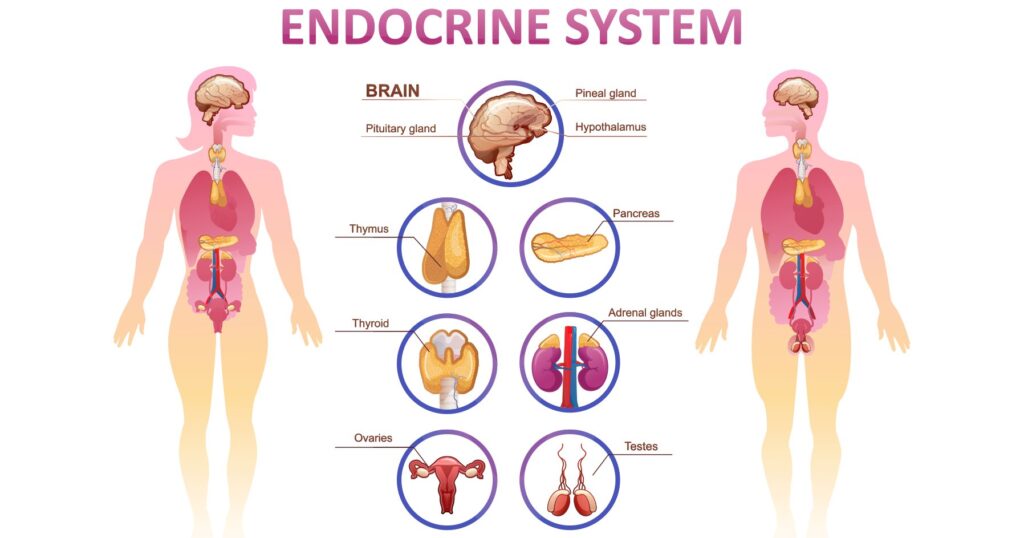
Importance of Promoting Awareness
Prevalence and Impact of Endocrine System Disorders
Endocrine system disorders are more common than people may realize and can have a significant impact on an individual’s quality of life. Millions of people worldwide are affected by conditions such as diabetes, thyroid disorders, and hormonal imbalances. Raising awareness about these disorders is crucial to ensure early detection, proper diagnosis, and effective management.
Early Detection and Intervention
Promoting awareness of endocrine system disorders can help individuals recognize potential symptoms and seek medical attention early on. Early detection allows for timely intervention and treatment, which can significantly improve outcomes and prevent further complications. For example, detecting and managing diabetes early can help prevent serious complications such as heart disease and kidney damage.
Reducing Stigma and Misconceptions
Endocrine disorders, particularly those that affect reproductive health, can be stigmatized and misunderstood. By promoting awareness, we can help dispel misconceptions and reduce the stigma associated with conditions such as PCOS or hypogonadism. This can empower individuals to seek the care they need without fear of judgment or discrimination.
Improving Quality of Life
Endocrine system disorders can have a profound impact on an individual’s physical, emotional, and social well-being. By increasing awareness, individuals with these conditions can receive the support and resources they need to manage their symptoms, improve their quality of life, and participate fully in society.
Educational Initiatives and Resources
Patient Education Materials
Creating easily accessible and comprehensive patient education materials is essential for promoting awareness and understanding of endocrine system disorders. These materials should provide clear and reliable information about the disorders, their symptoms, diagnosis, treatment options, and self-management strategies. They should be available in various formats and languages to cater to diverse populations.
Online and Offline Educational Programs
Online and offline educational programs can play a vital role in increasing knowledge and understanding of endocrine system disorders. Webinars, workshops, seminars, and conferences can provide healthcare professionals, patients, and the general public with up-to-date information, research findings, and practical strategies for prevention, management, and support.
Awareness Campaigns and Events
Public awareness campaigns and events centered around endocrine system disorders can help reach a wider audience and promote understanding. These initiatives can include media campaigns, community walks, health fairs, and awareness-raising events in collaboration with local organizations, healthcare providers, and government agencies.
Support Groups and Forums
Support groups and online forums provide a valuable platform for individuals living with endocrine system disorders to connect, share experiences, and gain support from others facing similar challenges. These groups can serve as a source of emotional support, practical advice, and a space for advocacy and empowerment.
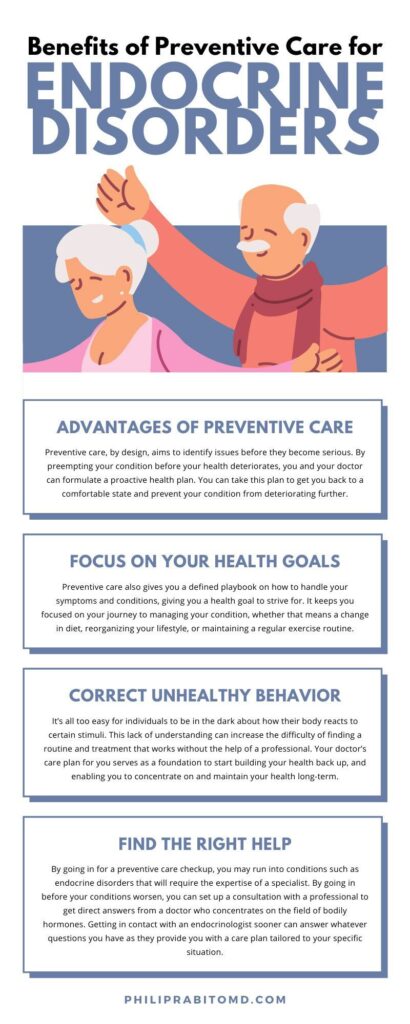
Role of Healthcare Professionals
Identification and Diagnosis
Healthcare professionals play a crucial role in identifying and diagnosing endocrine system disorders. It is important for healthcare providers to have a high level of suspicion for these disorders, especially in patients presenting with suggestive symptoms. They should have comprehensive knowledge of the signs, symptoms, and diagnostic tests required to accurately identify and diagnose these conditions.
Treatment and Management
Once an endocrine system disorder has been diagnosed, healthcare professionals are responsible for developing and implementing appropriate treatment plans. These plans may include medication management, lifestyle modifications, regular monitoring, and referrals to specialists when needed. Healthcare professionals should also provide ongoing support and education to help patients manage their conditions effectively.
Collaboration with Patients
Collaboration between healthcare professionals and patients is essential for the successful management of endocrine system disorders. Healthcare professionals should actively involve patients in their care, encouraging them to participate in shared decision-making, setting goals, and providing them with the necessary tools and resources to self-manage their conditions. This collaborative approach can greatly enhance patient satisfaction, adherence to treatment, and overall health outcomes.
Continuing Education and Training
To provide optimal care for individuals with endocrine system disorders, healthcare professionals should engage in continuous education and training. This ensures that they stay updated with the latest research, guidelines, and advancements in the field. Continuing education programs can include conferences, workshops, online courses, and professional development opportunities.
Involvement of Schools and Educational Institutions
Curriculum Integration
Endocrine system disorders should be incorporated into the curriculum of schools and educational institutions, both at primary and secondary levels. Including age-appropriate content on topics such as reproductive health, diabetes prevention, and healthy lifestyle choices can significantly contribute to raising awareness and promoting early intervention.
Health Education Programs
Schools can implement health education programs that provide students with knowledge and skills related to endocrine system disorders. These programs should cover topics such as nutrition, physical activity, mental health, and prevention strategies for conditions such as diabetes and obesity. By equipping students with these essential tools, we can empower them to make informed decisions and lead healthy lives.
School Awareness Campaigns
Schools can organize awareness campaigns to educate students, teachers, and parents about endocrine system disorders. These campaigns can take the form of informative posters, presentations, guest speakers, and interactive activities. By involving the entire school community, we can create a supportive environment that fosters understanding and empathy.
Training for Teachers and Staff
Providing training for teachers and staff members on endocrine system disorders can help them recognize symptoms, support affected students, and create an inclusive and accommodating learning environment. Teachers and staff should be aware of the potential impact of these disorders on a student’s academic performance, social interactions, and emotional well-being.
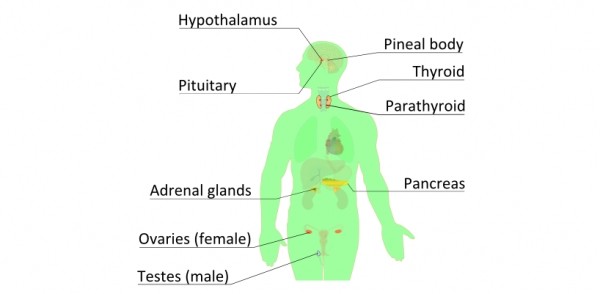
Role of Government and Non-Profit Organizations
Funding Research and Development
Government and non-profit organizations play a crucial role in funding research and development initiatives focused on endocrine system disorders. By investing in research, we can advance our understanding of these disorders, develop innovative treatments and interventions, and work towards finding a cure for conditions that currently have limited options.
Policy Development and Advocacy
Government bodies can play an active role in developing policies and regulations that support individuals with endocrine system disorders. These policies can ensure access to affordable and comprehensive healthcare, promote equal opportunities in education and employment, and protect the rights and well-being of those affected by these conditions. Non-profit organizations can also engage in advocacy efforts to raise awareness and influence policy changes.
Partnerships and Collaborations
Collaboration between government agencies, non-profit organizations, healthcare providers, and community groups is essential for promoting awareness and improving the lives of individuals with endocrine system disorders. Partnerships can facilitate the sharing of resources, expertise, and best practices, resulting in more comprehensive and impactful initiatives.
Public Health Campaigns
Government and non-profit organizations can launch public health campaigns to raise awareness and educate the general public about endocrine system disorders. These campaigns can utilize various media channels, public events, and community outreach initiatives to reach a wide audience and promote early detection, prevention, and support.
Media and Communication Strategies
Social Media Campaigns
Social media platforms can serve as powerful tools for raising awareness about endocrine system disorders. Organizations, healthcare professionals, and individuals can leverage social media campaigns to share educational resources, personal stories, and inspiring messages. Social media also provides an opportunity for individuals to connect, support one another, and find a sense of community.
Awareness Videos and Documentaries
Producing and sharing awareness videos and documentaries can have a significant impact in educating the public about endocrine system disorders. These videos can feature personal stories, interviews with healthcare professionals, and explanations of various conditions and their impact on individuals’ lives. Making these videos easily accessible on platforms like YouTube or through websites can help reach a wider audience.
Interviews and News Coverage
Collaborating with media outlets to conduct interviews and feature news stories about endocrine system disorders can help generate public interest and understanding. These interviews can involve healthcare professionals, individuals living with these disorders, and experts in the field. Regular news coverage can also help keep the topic in the public eye and contribute to the overall awareness efforts.
Influencer Engagement
Engaging influencers, bloggers, and celebrities who have a significant following can help amplify awareness of endocrine system disorders. Collaborating with these individuals to share personal stories, provide educational content, and promote events or campaigns can increase awareness among their followers and encourage a broader conversation about these disorders.
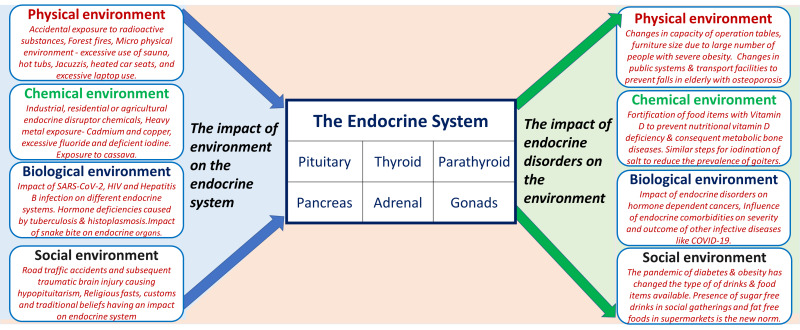
Engaging the General Public
Public Awareness Events
Organizing public awareness events, such as health fairs, exhibitions, and community walks, can bring together individuals from various backgrounds to learn and engage with the topic of endocrine system disorders. These events can provide informational booths, health screenings, interactive activities, and opportunities for networking and support.
Community Outreach Programs
Reaching out to local communities through community outreach programs can serve as an effective way to raise awareness and educate individuals about endocrine system disorders. These programs can involve partnerships with community centers, schools, clinics, and other organizations to provide educational sessions, workshops, and resources tailored to the specific needs and demographics of the community.
Health Fairs and Expos
Participating in health fairs and expos allows organizations and healthcare professionals to directly engage with the general public and provide information on endocrine system disorders. These events often involve booths, presentations, and interactive activities that encourage attendees to learn, ask questions, and access resources.
Educational Materials for the General Public
Creating educational materials specifically designed for the general public can help disseminate accurate information about endocrine system disorders to a wider audience. These materials can include brochures, fact sheets, infographics, and online resources that provide essential information, tips for prevention, and guidance on seeking medical help when needed.
Empowering Individuals with Endocrine System Disorders
Self-Management Education
Providing self-management education to individuals with endocrine system disorders empowers them to actively participate in their own care. Education can include guidance on medication management, lifestyle modifications, self-monitoring of symptoms, and recognizing signs of complications. By equipping individuals with these self-management skills, they can gain a sense of control over their conditions and make informed decisions.
Support Networks and Resources
Establishing and promoting support networks and resources is crucial for individuals living with endocrine system disorders. Peer support groups, online forums, and helplines can provide individuals with opportunities to share experiences, seek advice, and find emotional support. Accessible and trustworthy resources, such as websites, books, and podcasts, can also provide reliable information and ongoing support.
Advocacy and Self-Expression
Fostering a culture of advocacy and self-expression can empower individuals with endocrine system disorders to become advocates for themselves and others. Organizations and communities can provide platforms for individuals to share their stories, raise awareness, and drive change. Encouraging individuals to get involved in advocacy campaigns, fundraising events, and awareness initiatives can help amplify their voices and promote inclusivity.
Improving Access to Healthcare
Ensuring equitable access to comprehensive healthcare services is essential for individuals with endocrine system disorders. Efforts should be made to reduce barriers to healthcare, such as cost, geographical location, and cultural sensitivity. Expanding access to screening programs, diagnostic tests, and specialist care can help individuals receive timely and appropriate treatment, improving their overall health outcomes.
In conclusion, promoting awareness and education about endocrine system disorders is crucial to improving the lives of individuals affected by these conditions. By increasing knowledge, dispelling misconceptions, and providing support, we can enhance early detection, facilitate effective management, and empower individuals to lead fulfilling and healthy lives. Collaboration between healthcare professionals, government organizations, non-profit entities, educational institutions, and the general public is key to achieving these goals and making a positive impact on the lives of individuals with endocrine system disorders.